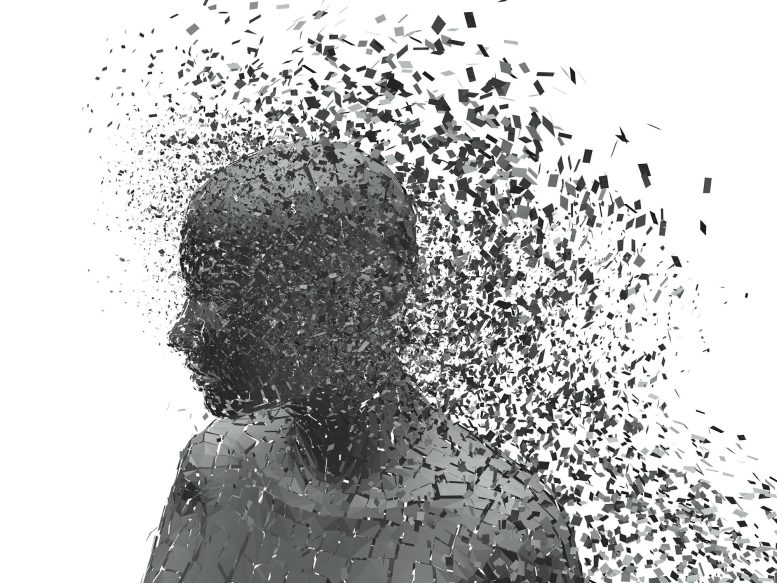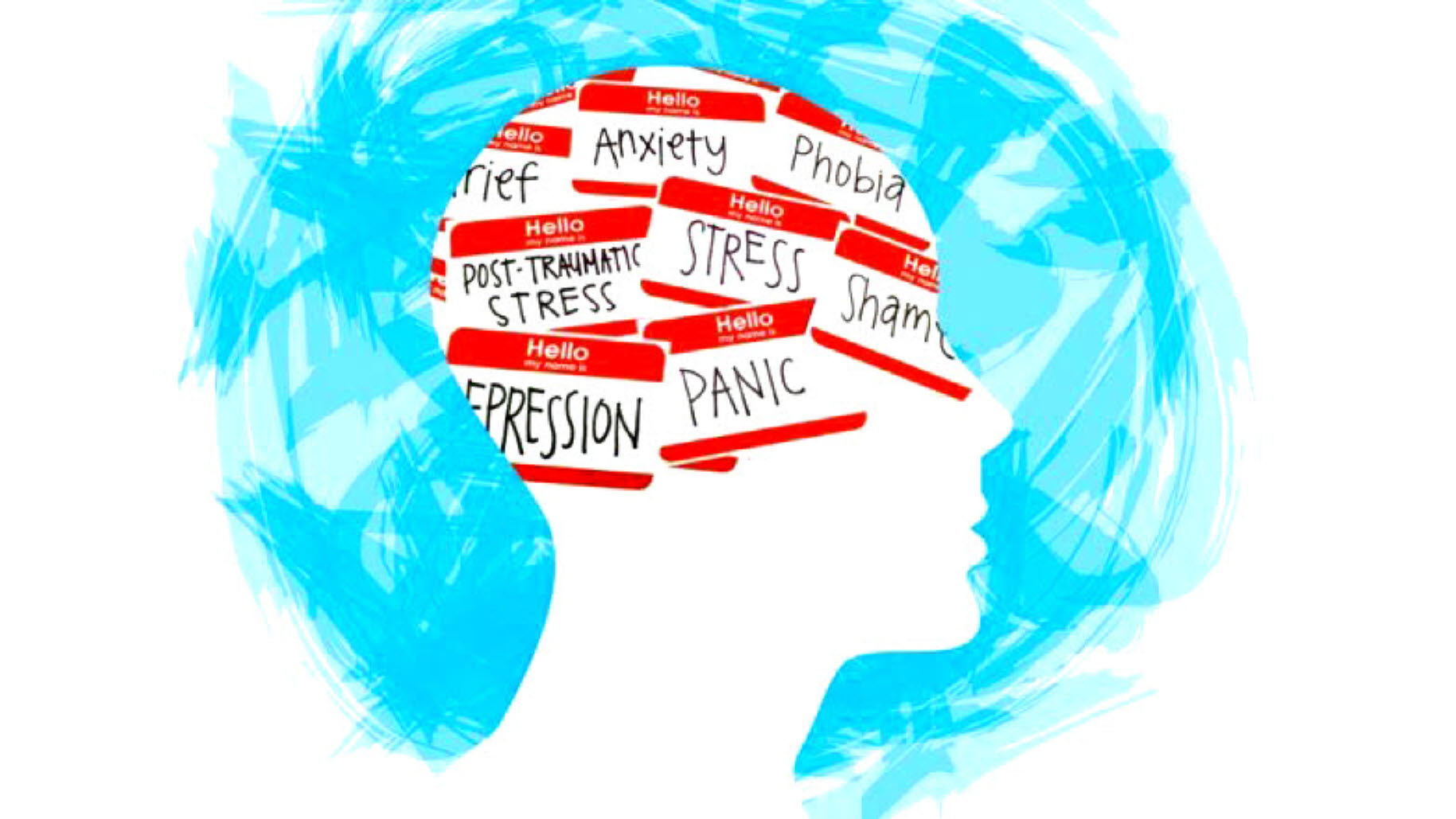By #WASHINGTONUNIVERSITY IN ST. LOUIS

Data point to rise in #anxiety, #depression, substance use disorders, #suicidalthoughts.
As the #COVID-19 #pandemic stretches into its third year, countless people have experienced varying degrees of uncertainty, #isolation, and #mentalhealthchallenges.
However, those who have had #COVID-19 have a significantly higher chance of experiencing #mentalhealthproblems, according to researchers at #WashingtonUniversity School of Medicine in St. Louis and the #VeteransAffairs St. Louis Health Care System. Such disorders include #anxiety, #depression, and #suicideideation, as well as opioid use disorder, illicit drug and #alcohol use disorders, and disturbances in sleep and cognition.
In a large, comprehensive study of #mentalhealth outcomes in people with SARS-CoV-2 infections, researchers found that such disorders arose within a year after recovery from the #virus in people who had serious as well as mild infections.
“My hope is that this dispels the notion that #COVID-19 is like the flu. It’s so much more serious.”
— Ziyad Al-Aly, MD, a clinical epidemiologist at #WashingtonUniversity
#JamesDonaldson notes:
Welcome to the “next chapter” of my life… being a voice and an advocate for #mentalhealthawarenessandsuicideprevention, especially pertaining to our younger generation of students and student-athletes.
Getting men to speak up and reach out for help and assistance is one of my passions. Us men need to not suffer in silence or drown our sorrows in alcohol, hang out at bars and strip joints, or get involved with drug use.
Having gone through a recent bout of #depression and #suicidalthoughts myself, I realize now, that I can make a huge difference in the lives of so many by sharing my story, and by sharing various resources I come across as I work in this space. #http://bit.ly/JamesMentalHealthArticle
Overall, the study found that people who had #COVID-19 were 60% more likely to suffer from #mentalhealthproblems than those who were not infected, leading to an increased use of prescription medication to treat such problems and increased risks of substance use disorders including opioids and nonopioids such as #alcohol and illicit drugs.
The findings were published on February 16, 2022, in the journal The BMJ.
“We know from previous studies and personal experiences that the immense challenges of the past two years of the #pandemic have had a profound effect on our collective #mentalhealth,” said senior author Ziyad Al-Aly, MD, a clinical epidemiologist at #WashingtonUniversity. “But while we’ve all suffered during the #pandemic, people who have had #COVID-19 fare far worse mentally. We need to acknowledge this reality and address these conditions now before they balloon into a much larger #mentalhealthcrisis.”
More than 403 million people globally and 77 million in the U.S. have been infected with the #virus since the #pandemic started.
“To put this in perspective, #COVID-19 infections likely have contributed to more than 14.8 million new cases of #mentalhealthdisorders worldwide and 2.8 million in the U.S.,” Al-Aly said, referring to data from the study. “Our calculations do not account for the untold number of people, likely in the millions, who suffer in silence due to #mentalhealth #stigma or a lack of resources or support. Further, we expect the problem to grow because cases seem to be increasing over time. Frankly, the scope of this #mentalhealthcrisis is jarring, frightful, and sad.
“Our goal was to provide a comprehensive analysis that will help improve our understanding of the long-term risk of #mentalhealthdisorders in people with #COVID-19 and guide their post-infection health care,” added Al-Aly, who treats #patients within the VA St. Louis Health Care System. “To date, studies on #COVID-19 and #mentalhealth have been limited by a maximum of six months of follow-up data and by a narrow selection of #mentalhealth outcomes — for example, examining #depression and #anxiety but not substance use disorders.”
The researchers analyzed de-identified medical records in a database maintained by the U.S. #Department ofVeteransAffairs, the nation’s largest integrated health-care delivery system. The researchers created a controlled dataset that included health information of 153,848 #adults who had tested positive for #COVID-19 sometime from March 1, 2020, through Jan. 15, 2021, and who had survived the first 30 days of the disease. Few people in the study were vaccinated prior to developing #COVID-19, as vaccines were not yet widely available at the time of enrollment.
Statistical modeling was used to compare #mentalhealth outcomes in the #COVID-19 dataset with two other groups of people not infected with the #virus: a control group of more than 5.6 million #patients who did not have #COVID-19 during the same time frame; and a control group of more than 5.8 million people who were #patients from March 2018 through January 2019, well before the #pandemic began.
The majority of study participants were older white #males. However, because of its large size, the study included more than 1.3 million #females, more than 2.1 million #Black participants, and large numbers of people of various ages.
Compared with those in the control groups without any infections, people who contracted #COVID-19 were 35% more likely to suffer from #anxietydisorders and nearly 40% more likely to experience #depression or #stress-related disorders that can affect #behavior and emotions. This coincided with a 55% increase in the use of antidepressants and a 65% growth in the use of benzodiazepines to treat #anxiety.
Similarly, people who had recovered from #COVID-19 were 41% more likely to have #sleepdisorders and 80% more likely to experience neurocognitive decline. The latter refers to forgetfulness, confusion, a lack of focus, and other impairments commonly known together as brain fog.
More worrisome, compared with people without #COVID-19, those infected with the #virus were 34% more likely to develop opioid use disorders and 20% more likely to develop nonopioid substance use disorders involving #alcohol or illegal drugs. They were also 46% more likely to have #suicidalthoughts.
“People need to know that if they have had #COVID-19 and are struggling mentally, they’re not alone, and they should seek help immediately and without shame,” Al-Aly said. “It’s critical that we recognize this now, diagnose it and address it before the opioid crisis snowballs and we start losing more people to #suicide.
“There needs to be greater recognition of these issues by governments, public and private health insurance providers, and health systems to ensure that we offer people equitable access to resources for diagnosis and treatment,” he added.
To better understand whether the increased risk of #mentalhealthdisorders is specific to SARS-CoV-2 virus, the researchers also compared the #COVID-19 #patients with 72,207 flu #patients, including 11,924 who were hospitalized, from October 2017 through February 2020. Again, the risk was significantly higher — 27% and 45% — in those who had mild and serious #COVID-19 infections, respectively.
“My hope is that this dispels the notion that #COVID-19 is like the flu,” Al-Aly said. “It’s so much more serious.”
Because hospital stays can precipitate #anxiety, #depression and other #mental conditions, the researchers compared people who were hospitalized for #COVID-19 during the first 30 days of the infection to those hospitalized for any other cause. #Mentalhealthdisorders were 86% more likely in people hospitalized for #COVID-19.
“Our findings suggest a specific link between SARS-Co-V-2 and #mentalhealthdisorders,” Al-Aly continued. “We’re not certain why this is, but one of the leading hypotheses is that the #virus can enter the brain and disturb cellular and neuron pathways, leading to #mentalhealthdisorders.
“What I’m absolutely certain about is that urgent attention is needed to identify and treat #COVID-19 survivors with #mentalhealthdisorders,” he said.
Reference: “Risks of #MentalHealth Outcomes in People with #COVID-19” Yan Xie, Evan Xu and Ziyad Al-Aly, 16 February 2022, The BMJ.
DOI: 10.1136/bmj-2021-068993
People with #suicidalthoughts should call the #NationalSuicidePreventionLifeline at 800-273-TALK (8255). People struggling with #mentalhealthissues can call the #NationalAllianceonMentalIllness at 800-950-NAMI (6264) or text “#NAMI” to 741741.




